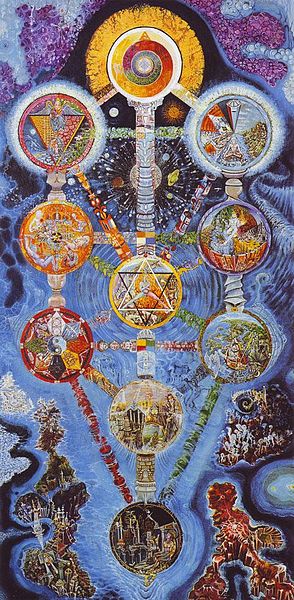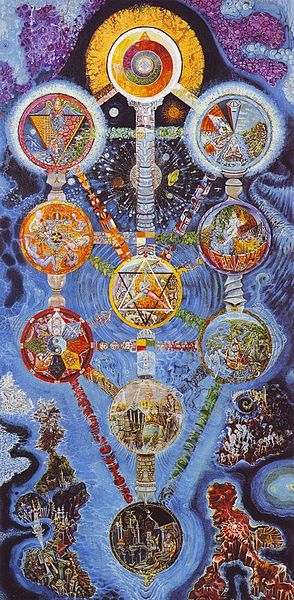Rabbi Philip Berg, who died Monday at the age of either 82 or 84, became rich and famous for attracting Hollywood celebrities and a lot of other people, Gentiles and Jews, to his patented brand of pop Kabbalah. He disclosed something of his technique in a New York courtroom in 1996, testifying at a civil trial for plagiarizing the work of an orthodox kabbalist.
Question. And when you made The Power of the Aleph Beth, did you literally translate the Zohar?
Answer. The top part, yeah—I don’t recall because that was not important…
Q. What about Rabbi Ashlag’s Commentary that is contained below?
A. No, I did not do a literal translation of Rabbi Ashlag for the purpose that this book—I’m sorry. That—Rabbi Ashlag, in my estimation, could not be understood by, maybe, more than three or four people in the world.
Q. So, what is it that you did do with respect to Rabbi Ashlag’s commentaries?
A. What I did is take his Commentary, not always translating his Commentary, and make an attempt to provide the Zohar in a language and comprehension for the layman…
Q. Now you said that you translated or wrote the Commentary so that it would be accessible to the people; is that correct?
A. Yes.
Q. And throughout The Power of the Aleph Beth you would use language like “Darth Vader” or Telstar when you were actually explaining the commentaries; is that correct?
A. Yes.
Q. You make comment to Madonna; is that right?
A. Yes.
Q. “The Material Girl,” is that right?
A. Yes.
But it wasn’t just that the Rav, as Berg was honorically called by his followers, updated and franchised the esoterica of Jewish mysticism at his Los Angeles Kabbalah Center and its outposts around the world. A decade ago, the Israeli writer Yossi Klein Halevi uncovered the secret of his success in a fine piece of reporting published in the New Republic. “They don’t tell everyone who walks through the door that it’s really about immortality,” a former Kabbalah Center insider told him. “But, subtly, the more you get into it, the more they reveal their real agenda.”
The Rav leads his disciples in the Kaddish prayer, shouting its words as if in a rage. Then he interrupts the conventional service and begins chanting “Chernobyl” and other names I can’t identify. A devotee explains, straight-faced, that these are all names of nuclear power plants: The Rav is trying to heal the problem of nuclear waste, which the Centre’s devotees believe is spreading aids. “Whooo!” calls out Berg and his followers, waving their hands as if to send the healing vibrations onward. Pointing up toward heaven and then down to Earth, they shout the word “immortality” in several languages. Why immortality? I ask another devotee. “Because each person is potentially a messiah,” he replies. “Immortality isn’t just in heaven. It’s possible right here on Earth.”
Berg was buried Wednesday in a grand mausoleum in Safad, Israel, the historic center of kabbalistic learning, near the tombs of the great kabbalists of the 16th century. At the funeral, the crowd (including Ashton Kutcher and his girlfriend Mila Kunis) chanted the Maimonidean creed “Ani Ma’amin,” which in recent years has come to signify the imminent coming of the Messiah.







